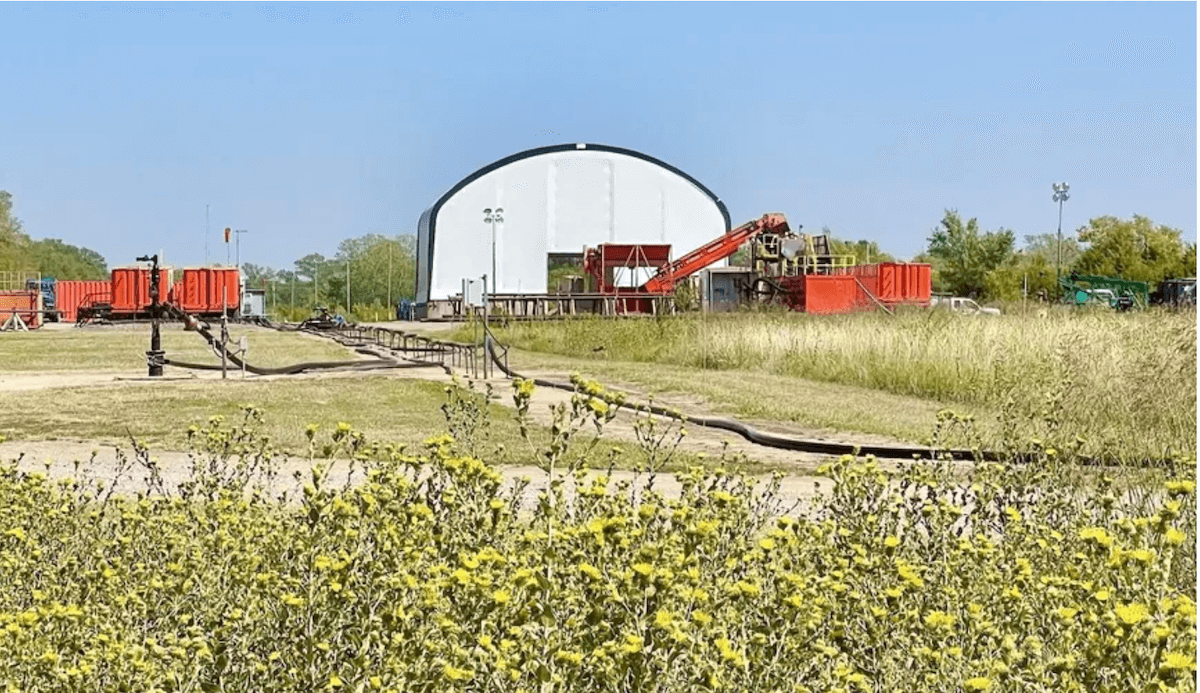ImpactAlpha, Oct. 12 – It was only a matter of time before someone put an impact spin on litigation funds, which in recent years have attracted billions in investor capital.
The draw: the rich returns in lawsuits that have the potential to rake in big awards.
That’s the idea behind Aristata Capital, which is applying the model to legal cases that generate environmental and social gains in addition to legal payouts. The £10 million (about $13 million) investment from Capricorn Investment Group, which manages money for billionaire Jeff Skoll and his organizations, will anchor one of the first such impact litigation funds.
London-based Aristata says it has lined up additional financing from the impact investment arm of a large global philanthropic foundation and two family offices. The fund is seeking to raise up to £100 million.
How it works: Aristata will contract with claimants to finance lawsuits against deep-pocketed corporate entities that have caused harm. Like other litigation funds, it will recoup a multiple of invested capital or a percentage of damages. That formula can generate private equity-like internal rates of return of between 20% and 30% per year.
Aristata departs from mainstream litigation-fund practices in key ways. It takes on legal cases ranging from mining disasters, oil spills and renewable energy financing cases to gender pay discrimination and indigenous rights – cases most funders wouldn’t touch.
At least half of the proceeds of any litigation will go to the claimant. And Aristata is willing to take a lower return than other litigation financiers do, especially for cases that have potential for significant impact.
“This is new space and a new strategy,” Aristata’s Rob Ryan tells ImpactAlpha. As the climate crisis heats up and inequality grows around the globe, “We need to be using every tool possible,” he says.
The investment by Capricorn may help to address the squeamishness that impact investors might feel about litigation as a strategy or asset class. Capricorn’s Ion Yadigaroglu acknowledges the conventional litigation funding market evokes a whiff of “ambulance chasing.”
.
“What attracted us,” Yadigaroglu told ImpactAlpha, “is the good returns possible in litigation finance as evidenced by the established firms, the compelling explanation as to how those firms don’t do a good job today of addressing the opportunity in environmental and social litigation, and the strong and unique impact that litigation finance can deliver.”
Underwriting for environmental and social benefit “is front and center at the start of the funnel,” he says.
The investment is among the first for Capricorn’s Sustainable Investors Fund, which seeds impact-focused investment managers. In May, the fund announced a stake to help U.K.-based sustainable asset manager Osmosis Investment Management expand into the U.S.
Legal strategy
Courts have long been used as a tool for social and environmental change. Nonprofits like the Environmental Defense Fund and Natural Resources Defense Council have for decades gone up against government agencies. NRDC helped win passage of the Clean Water Act in the 1970s, and more recently has challenged the Trump Administration’s efforts to weaken clean water protections.
Aristata’s founders, with backgrounds in litigation, environmental advocacy and fund management, are staking out the market for commercial impact litigation.
Commercial litigation, says Ryan, requires a different skill set and a much deeper war chest. Many corporations, for example, try to scare off smaller and economically disadvantaged opponents with the threat of costly, protracted legal battles. Think: A Civil Action, or Chevron’s decades-long effort to avoid accountability for contaminating the Ecuadorian rainforest in a suit brought by 30,000 indigenous farmers and individuals.
“Being able to flex your financial might is the primary strategy in many cases of litigation,” says Ryan. “A litigation funder with a strong balance sheet coming to the table to work alongside a claimant really changes the dynamic.”
Aristata expects to spend between £2 million and £4 million per case, which can each take up to 2-½ years to resolve. About 70% of the claimants are expected to be commercial entities, with the rest of the cases made up of groups of individuals. The damages at issue may be located anywhere in the world, but cases will be filed in major legal jurisdictions.
Ryan declined to quantify the size of the market, but says the firm has identified 30 investable claims that meet its impact and return criteria and “aren’t being looked at by anybody else in this space.” The potential claims represent about £60 million in investment and £1 billion of potential returns in the U.K. and Australia. The opportunity is large enough, he adds, that the firm could double the size of the £100 million fund every three years.
Aristata’s first fund will be diversified by geography and cause area. Investors have expressed interest in themed funds, such as a climate litigation fund, or a human rights fund.
“We have to take proactive steps to create a type of change that we know is going to be meaningful for us,” Ryan says. That means not waiting for governments to regulate commercial behavior. “Globally, we need to be using every tool possible to try to stop the climate from changing more than it has, and to try to create greater equity.”











